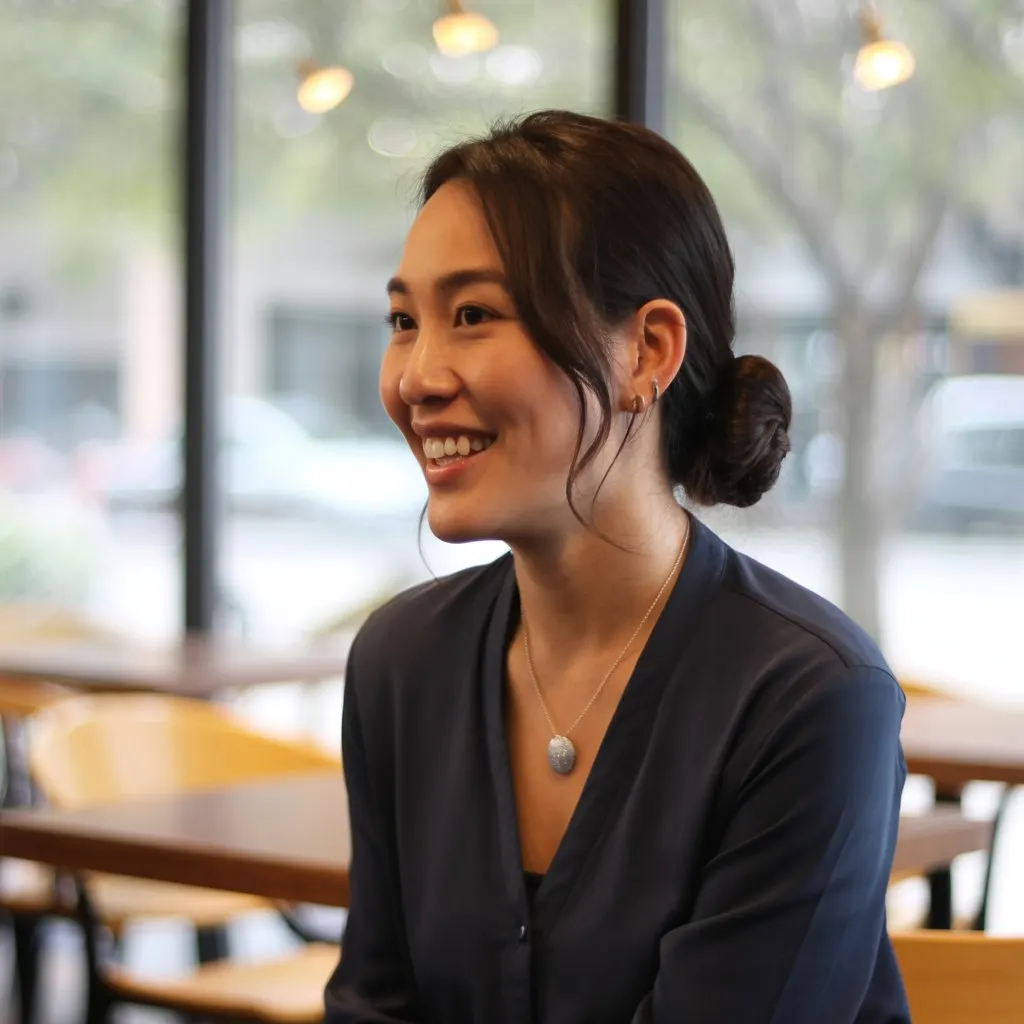You know that feeling when your phone buzzes with yet another holiday party invitation, and instead of excitement, your stomach drops? I was scrolling through my messages last December, looking at three different Christmas gatherings I’d committed to, and I could already feel my chest tightening. The holidays—a season meant for joy and connection—can feel like an anxiety minefield when social situations make your heart race and your palms sweat.
I’ve been there more times than I care to count. There’s something about the holiday season that amplifies social anxiety in ways that catch us off guard. Maybe it’s the pressure to be “merry and bright” when we’re struggling internally, or perhaps it’s the sheer volume of social expectations packed into a few short weeks. Whatever the reason, if you’re reading this while feeling overwhelmed by upcoming holiday gatherings, I want you to know you’re not alone—and more importantly, there are gentle, faith-centered ways to navigate this season with greater peace.
Here’s what I’ve learned through my own journey with social anxiety during the holidays: God doesn’t expect us to white-knuckle our way through every gathering with a forced smile. Instead, He meets us in our anxiety and provides practical tools, spiritual anchors, and the wisdom to set healthy boundaries that honor both our well-being and our relationships.
Understanding Why Holiday Social Anxiety Intensifies
Before we dive into coping strategies, let me share something that changed my perspective completely. For years, I thought I was being dramatic or weak when holiday social situations left me feeling drained and anxious. Then I realized that the holiday season creates what I call the “perfect storm” for social anxiety.
Think about it: we’re dealing with family dynamics that might be complicated, meeting new people at parties, navigating conversations about our personal lives, and often doing all of this while managing the financial and time pressures that come with the season. Add in the cultural message that we should be grateful and joyful, and it’s no wonder our nervous systems go into overdrive.
I’ve found comfort in remembering that even Jesus needed time away from crowds. Luke 5:16 tells us that “Jesus often withdrew to lonely places and prayed.” If the Son of God needed solitude to recharge, surely we can give ourselves permission to acknowledge when social situations feel overwhelming.

Preparing Your Heart and Mind Before Gatherings
One of the most transformative practices I’ve developed is what I call “pre-gathering prayer preparation.” About a week before any holiday event, I sit down with my coffee (and usually Bailey, my rescue dog, at my feet) and have an honest conversation with God about my concerns.
This isn’t about asking God to magically remove all anxiety—though He certainly can if that’s His will. Instead, it’s about surrendering my fears and asking for His presence in the midst of whatever I might face. I’ll pray something like, “Lord, You know I’m feeling anxious about this party. Help me remember that I don’t have to perform or be perfect. Give me Your peace and help me focus on loving others well, even if I can only do that for a short time.”
I also spend time visualizing the event going well. This isn’t positive thinking for its own sake—it’s faith-based preparation. I picture myself having meaningful conversations, finding moments of genuine connection, and being able to step away when I need to recharge. Philippians 4:8 encourages us to think about things that are true, noble, right, and lovely. When I focus on the potential good in upcoming social situations, it helps calm my anxious thoughts.
Another practical step I take is planning my arrival and departure in advance. I’ve learned that having an exit strategy doesn’t mean I’m planning to fail—it means I’m being wise about my limitations. I might tell the host I can only stay for two hours, or I’ll drive separately so I can leave when I need to without depending on others.
In-the-Moment Coping Techniques That Actually Work
When you’re in the middle of a holiday gathering and feel that familiar anxiety rising, here are some strategies I’ve found incredibly helpful:
The Bathroom Reset: This might sound simple, but stepping away to the bathroom for two minutes can be a game-changer. I splash cool water on my wrists, take five deep breaths, and remind myself of a short verse or affirmation. Something like “God has not given me a spirit of fear, but of power, love, and sound mind” (2 Timothy 1:7) can recenter my thoughts quickly.
The Sacred Pause: Before responding to questions or joining conversations, I’ve learned to give myself a moment. Instead of feeling pressured to fill every silence immediately, I’ll take a breath and say something like, “That’s a great question, let me think for a second.” This tiny pause helps me respond from a place of calm rather than anxiety.
Finding Your Anchor Person: At most gatherings, there’s usually one person who feels safe and comfortable to talk with. I make it my goal to identify that person early and stay near them, especially during more overwhelming moments. It might be your cousin who always makes you laugh, or the family friend who asks genuine questions and really listens to your answers.
The Helper’s Role: One of my favorite anxiety management techniques is asking the host if there’s anything I can help with. Folding napkins, refilling drinks, or helping in the kitchen gives me a purpose and often leads to more natural, one-on-one conversations. Plus, there’s something therapeutic about keeping your hands busy when your mind is racing.
Setting Boundaries Without Guilt
Here’s something I wish someone had told me years ago: setting boundaries during the holidays isn’t selfish—it’s wise stewardship of the heart and mind God has given you. Jesus himself modeled healthy boundaries throughout His ministry, and we can follow His example.
This might mean saying no to some invitations, leaving parties early, or being honest about your needs. I’ve learned to say things like, “I’d love to come for a couple hours, but I’ll need to leave around 8 PM to recharge.” Most people respect honesty, and those who don’t probably aren’t people whose opinions should carry much weight in your life anyway.
Sometimes boundary-setting means being selective about which conversations you engage in deeply. If Uncle Bob always wants to debate politics or Aunt Susan keeps asking when you’re going to get married, it’s okay to have some polite redirect phrases ready. “I can see you feel strongly about that” followed by a subject change isn’t rude—it’s protective.
I’ve also found it helpful to give myself permission to take breaks during events. This might mean stepping outside for fresh air, finding a quiet corner to check my phone, or even sitting in my car for five minutes. These aren’t signs of failure; they’re acts of self-care that allow me to return to the gathering with more capacity for genuine connection.
Building Your Support Network
One thing I’ve discovered is that navigating holiday social anxiety is much easier when you have people in your corner who understand your struggles. This might be a close friend who knows your triggers, a family member who can help redirect difficult conversations, or even a small group from church that prays for you during challenging seasons.
Don’t be afraid to let trusted people know what you’re dealing with. I used to think I had to handle everything alone, but I’ve found that most people want to help—they just don’t know how unless we tell them. A simple text to a friend saying, “Heading to the office party tonight and feeling nervous—would you mind praying for me?” can make such a difference.
Consider asking someone to be your check-in person during events. This might be someone who texts you halfway through a party to see how you’re doing, or a friend you can call on the drive home to process how things went. Having that connection point helps you feel less alone in your experience.
Using Holiday Traditions to Anchor Your Faith
Instead of seeing holiday traditions as additional stressors, I’ve learned to view them as opportunities to ground myself in faith and find peace. For instance, I’ve started a personal tradition of reading the Christmas story from Luke 2 on the morning of any big holiday gathering. There’s something about remembering the quiet, humble beginning of Jesus’s life on earth that puts party anxieties in perspective.
I also keep a small card in my purse with a few verses that speak peace over anxiety. When I’m feeling overwhelmed at a gathering, I can excuse myself for a moment and read these reminders of God’s presence and peace. Some of my favorites include Psalm 23:4, Isaiah 41:10, and Matthew 11:28-30.
Another tradition I’ve developed is what I call “gratitude spotting” during social events. Instead of focusing on everything that feels overwhelming, I intentionally look for three things I can genuinely appreciate about the gathering. Maybe it’s the host’s thoughtfulness in preparing food, a child’s infectious laughter, or simply the fact that people want to come together to celebrate. This practice helps shift my focus from anxiety to appreciation.
When Social Anxiety Feels Overwhelming
There are times when social anxiety during the holidays becomes more than we can manage with basic coping strategies. If you find yourself avoiding all social situations, having panic attacks at gatherings, or feeling hopeless about the holiday season, please know that seeking additional help isn’t giving up—it’s being wise.
Professional counseling, especially from someone who understands both mental health and faith, can provide tools and insights that make a tremendous difference. Christian counselors can help you work through the roots of social anxiety while incorporating spiritual practices that support healing.
Sometimes medication can also be a helpful tool, especially for temporary periods during high-stress seasons. There’s no shame in using every resource God has provided for our well-being, including medical interventions when they’re appropriate.
Remember, asking for help is actually an act of faith. It acknowledges that God works through many means—professional counselors, medications, supportive friends, and spiritual practices—to bring healing and peace into our lives.
Creating New Holiday Memories
As I’ve grown in managing my social anxiety, I’ve discovered that some of my most meaningful holiday memories have come from the moments when I was most authentically myself—including my anxious, imperfect self. There’s something beautiful about connecting with others from a place of genuine vulnerability rather than trying to maintain a perfect facade.
I think about the Christmas party where I ended up having a deep conversation with another mom about postpartum anxiety, or the Thanksgiving dinner where I helped my elderly neighbor process her grief over her first holiday without her husband. These connections happened not despite my tendency toward anxiety, but because my own struggles made me more sensitive to others who were also navigating difficult emotions.
God has a way of using our broken places to bring healing to others. Your social anxiety, while challenging, has likely given you a heart for people who feel on the outside, who struggle with belonging, or who find social situations overwhelming. That’s a gift, even when it doesn’t feel like one.
Finding Peace in the Season
Here’s what I want you to remember as you navigate holiday social anxiety: you don’t have to choose between honoring your mental health and participating in meaningful relationships. God sees your struggle, He understands your heart, and He’s not asking you to pretend everything is fine when it’s not.
The goal isn’t to eliminate all anxiety—sometimes our nervous feelings are actually appropriate responses to genuinely challenging situations. Instead, the goal is to find ways to experience God’s peace in the midst of our anxiety, to connect authentically with others when possible, and to practice the kind of self-care that allows us to love well within our limitations.
This holiday season, I encourage you to approach social situations with both wisdom and grace—wisdom in setting appropriate boundaries and preparing well, and grace in accepting that some gatherings might go better than others. You’re not failing if you need to leave a party early or skip an event entirely. You’re being a good steward of the heart and mind God has given you.
Remember that Jesus came as Emmanuel—God with us—not just during the easy moments, but especially during the times when we feel overwhelmed, anxious, or uncertain. He’s present in the crowded party where your heart is racing, and He’s present in the quiet car ride home where you’re processing how things went. His peace isn’t dependent on our perfect performance at social gatherings; it’s a gift freely given to anxious hearts that turn to Him.
As you face whatever holiday gatherings lie ahead, may you find strength in His presence, wisdom in your preparations, and grace for the journey. You’re more loved than you know, and your presence—anxious moments and all—is a gift to the people who truly matter in your life.




